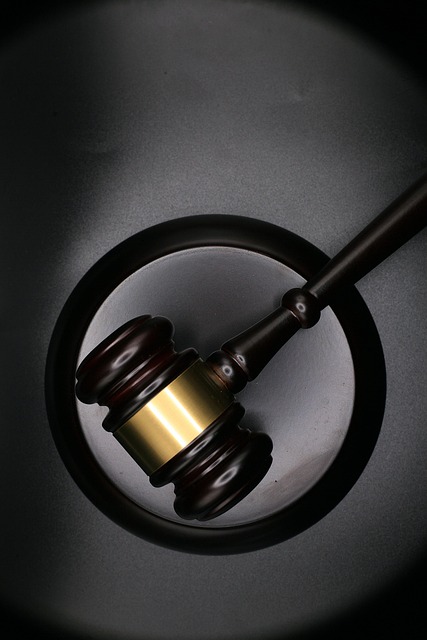Building a robust defense against false accusations is vital for protecting reputations and securing justice. This involves gathering evidence, exposing inconsistencies, understanding legal rights, and strategic cross-examination. Specialized legal counsel, especially in white-collar crime, is crucial for navigating complex cases, upholding innocence, and restoring trust. Meticulous investigation, evidence handling, and procedural expertise are key to successful defense strategies.
In the intricate web of criminal law enforcement, false accusations can cast individuals into the crucible of legal scrutiny. This article serves as a comprehensive guide for navigating these treacherous waters, focusing on building a robust defense against unfounded charges. We delve into common scenarios that lead to false accusations, exploring the crucial legal rights at play and practical strategies for constructing a solid defense. Learn expert evidence handling techniques and master courtroom navigation to protect your reputation.
- Understanding False Accusations: Common Scenarios
- Legal Rights When Faced with Untrue Charges
- Building a Solid Defense Strategy
- Evidence Handling and Cross-Examination Techniques
- Navigating the Courtroom: Protecting Your Reputation
Understanding False Accusations: Common Scenarios

False accusations can have devastating consequences, especially in high-stakes cases where reputations and lives hang in the balance. Understanding common scenarios is crucial when building a defense against such allegations. One frequent instance involves personal disputes turning into accusations of criminal behavior, where emotions run high and miscommunication can lead to false claims. Another scenario is in the professional realm, where workplace conflicts escalate and an aggrieved party levels serious charges without solid evidence.
For his clients, navigating these situations requires a strategic approach. An experienced legal team can help gather evidence to challenge the validity of the accusations, often exposing inconsistencies or lack of proof. By presenting a compelling defense, they aim for winning challenging defense verdicts, ensuring justice prevails and protecting the rights and freedom of the accused.
Legal Rights When Faced with Untrue Charges

When faced with untrue charges, understanding your legal rights is paramount. In any criminal proceeding, whether it’s a misdemeanor or a complex white-collar crime case, the accused has fundamental protections guaranteed by law. The first step in building a defense against false accusations involves invoking these rights and ensuring every procedural step is followed meticulously.
Knowing your rights allows you to navigate the legal system effectively. This includes the right to remain silent, the right to an attorney, and the right to confront witnesses against you. For those facing charges with potential consequences across the country, seeking the assistance of a skilled defense lawyer is crucial. A competent attorney specializing in white-collar defense can help gather evidence, challenge the prosecution’s case, and protect your respective business interests throughout the process.
Building a Solid Defense Strategy

When faced with false accusations, a robust defense strategy is paramount to navigating the complexities of criminal law enforcement. The first step in building an effective defense is thorough investigation and understanding of the charges. This involves scrutinizing evidence, interviewing witnesses, and gathering facts that contradict the allegations. An experienced legal team can help orchestrate this process, ensuring every angle is explored and potential weaknesses in the prosecution’s case are exposed.
A well-crafted defense strategy often focuses on distinguishing between criminal intent and mere misunderstanding or mitigating circumstances. For instance, in white-collar and economic crimes cases, a compelling argument could be made for lack of malicious intent or an honest mistake, leading to winning challenging defense verdicts. By presenting a solid, fact-based argument and achieving extraordinary results, the accused can clear their name and move forward with their lives.
Evidence Handling and Cross-Examination Techniques

In the intricate dance of criminal law enforcement, evidence handling and cross-examination techniques are pivotal in building a robust defense against false accusations. A general criminal defense strategy hinges on meticulous management of evidence, ensuring its integrity and admissibility in court. This includes proper documentation, storage, and preservation to prevent tampering or alterations. Legal professionals must also master the art of cross-examination, where they question witnesses to expose inconsistencies, biases, or potential inaccuracies in their testimonies, thereby weakening the prosecution’s case.
By employing these techniques, lawyers can navigate complex legal landscapes with an unprecedented track record of success. Skilled defense attorneys understand that avoiding indictment requires a keen eye for detail, strategic planning, and a deep understanding of procedural rules. Through rigorous analysis and presentation of counter-evidence, they can challenge the prosecution’s narrative, ultimately protecting their client from false charges or unjust convictions.
Navigating the Courtroom: Protecting Your Reputation

Navigating the courtroom can be a complex and stressful process, especially when facing false accusations. Building a robust defense is paramount to protecting your reputation and ensuring justice prevails. In this high-stakes environment, understanding the legal system and employing strategic tactics become crucial tools in your arsenal.
A well-crafted defense strategy starts with gathering compelling evidence, scrutinizing the accuser’s claims, and identifying any inconsistencies or weaknesses in their narrative. Legal experts in white-collar defense often leverage their knowledge of intricate laws and regulations to create a solid case. By presenting a formidable defense, individuals can navigate the courtroom with confidence, demonstrating their innocence and achieving extraordinary results while also fostering trust within the philanthropic and political communities.
Understanding the complexities of criminal law enforcement is crucial, especially when facing false accusations. By familiarizing yourself with common scenarios and your legal rights, you can begin building a solid defense strategy. Mastering evidence handling and cross-examination techniques will strengthen your case further. Ultimately, navigating the courtroom with confidence becomes key in protecting your reputation, ensuring justice prevails through a thorough understanding of Building a Defense Against False Accusations.






